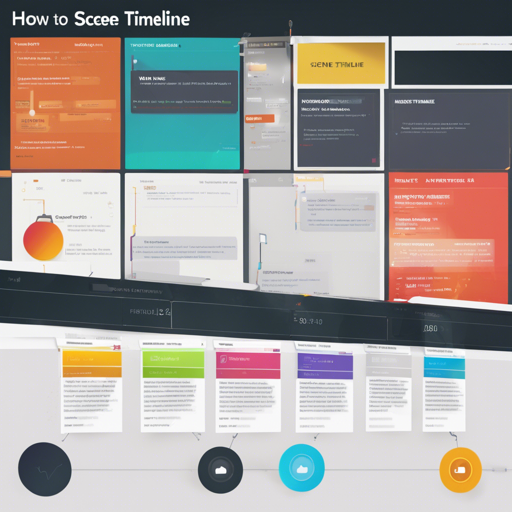Scene.js Timeline is a powerful tool that allows you to manage your timeline in web projects effectively. This guide will walk you through the steps to install, use, and troubleshoot any issues you may encounter while working with the Scene.js Timeline.
What is Scene.js Timeline?
Scene.js Timeline is a component designed to represent timelines for the Scene.js library. It enables you to control various properties, items, and time seamlessly within your applications, making it an essential addition for developers working on interactive projects.
Getting Started
To dive right into using Scene.js Timeline, follow these simple installation steps:
Installation
- Using npm:
$ npm i @scenejstimeline - Via script tag:
<script src="https://daybrush.com/scenejs-timeline/release/latest/dist/timeline.pkgd.min.js"></script>How to Use Scene.js Timeline
Once you’ve successfully installed the library, you can start integrating it into your project. Here’s a step-by-step guide on how to implement it:
import Scene from 'scenejs';
import Timeline, { SelectEvent } from '@scenejstimeline';
const scene = new Scene( ... );
const timeline = new Timeline(scene, document.body, {
keyboard: true,
});
timeline.on('select', (e: SelectEvent) => {
console.log(e.selectedItem);
});Code Explanation
Think of Scene.js as a stage and the Timeline as the script of a play. In this analogy:
- Scene: This is your stage where all the action happens.
- Timeline: The Timeline is the script that tells the actors (in our case, the elements) when to enter and exit the stage, and how to perform.
- Event Listener: The
timeline.on('select', ...)is like the director, calling out to the actors when they’re selected. In response, they give feedback (viaconsole.log) on which item was chosen.
Packages Available
Scene.js Timeline also provides component options for different frameworks:
- react-scenejs-timeline: A React component that controls the Scene.js timeline.
- preact-timeline: A Preact component that manages the Scene.js timeline.
Troubleshooting
If you run into issues while using Scene.js Timeline, here are some troubleshooting tips to help you out:
- Issue with installation: Make sure the package name is correct and your npm version is up to date.
- Errors in the console: Verify that all imports are correctly configured and that you are using valid options with your Scene.js and Timeline instances.
- Events not firing: Ensure that the timeline is correctly attached to the scene and check if your event listeners are set up properly.
- If problems persist, consider looking at the [issues section](https://github.com/daybrush/scenejs-timeline/issues) on GitHub for help or to ask questions.
For more insights, updates, or to collaborate on AI development projects, stay connected with fxis.ai.
Final Thoughts
At fxis.ai, we believe that such advancements are crucial for the future of AI, as they enable more comprehensive and effective solutions. Our team is continually exploring new methodologies to push the envelope in artificial intelligence, ensuring that our clients benefit from the latest technological innovations.

